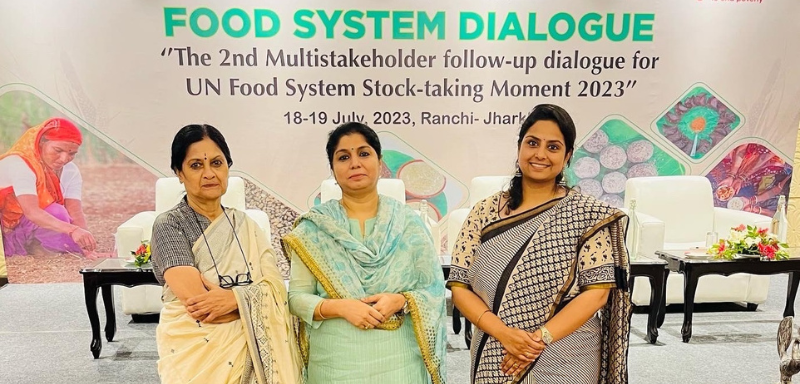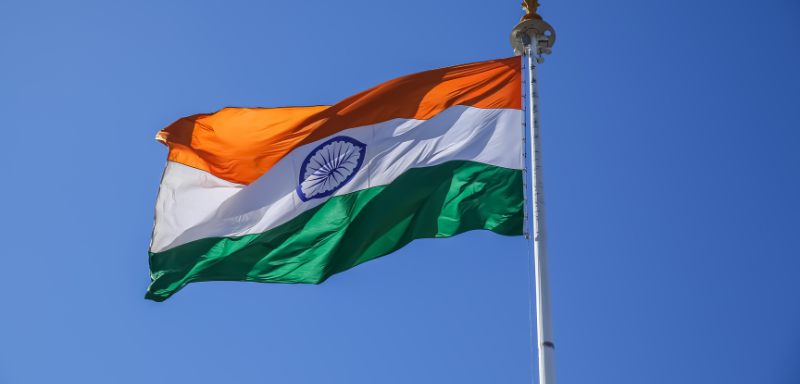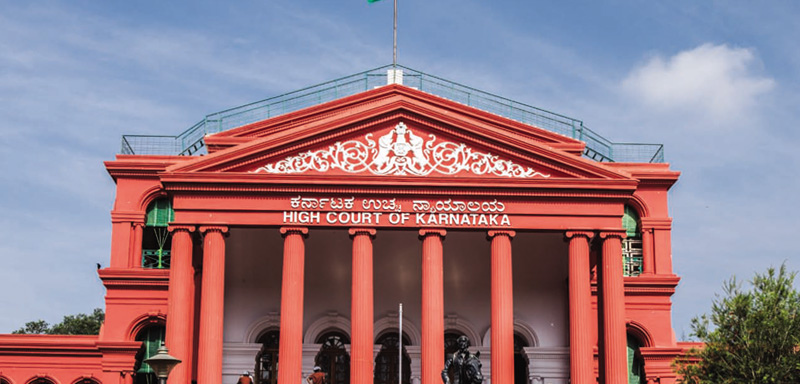
The Centre for Child and the Law (CCL) has been a significant contributor to the policy, legal and systemic landscapes associated with the implementation of the National Food Security Act (NFSA), 2013l. In pursuance of further strengthening these lNFSA implementation, CCL has taken up a crucial step to anchor the process of drafting a comprehensive set of rules under the NFSA, 2013 in atleast ten states in India.
After a foundational workshop that was organised at the NLSIU campus, to receive insights from domain experts, the first state round table discussion was held in \Jharkhand, in collaboration with National University of Study and Research in Law (NUSRL), Ranchi on 25th June 2024. The discussion facilitated the participation of representatives of civil society, academicians and practitioners and entailed comprehensive review of draft rules for the State of Jharkhand. CCL has formally received an endorsement from all the participants of this consultation. As a next step, CCL hopes to leverage the conducive environment and support in the State of Jharkhand to formally initiate the process of adoption of state rules. Furthermore, CCL hopes to engage with a wider spectrum of stakeholders to successfully facilitate the adoption of the rules and replication of the process in other states as well.
Endorsees (L to R): Mr. Vikas (WelthungerHilfe), Ms. Sasmita Jena (Welthungerhilfe), Prof. Shyamala (NUSRL), Prof. (Dr.) Ashok Patil (Vice Chancellor, NUSRL), Mr. Balram Jo (Right to Food Camplaign), Ms. Jyotsna Sripada (CCL), Ms. Diya Dasgupta (CCL), Mr. Vijay (PHIA foundation)

CCL organized a Planning Meeting towards the Implementation of National Food Security Act 2013 in Jharkhand in collaboration with the National University of Study and Research in Law, Ranchi, on April 3rd 2024. The agenda of the meeting was to discuss the plan of action to work towards realization of right to food for marginalised communities in the state of Jharkhand through effective implementation of National Food Security Act 2013. Many experts on right to food, law and child rights, participated in the meeting to assess the current status of NFSA implementation, to identify the gaps and opportunity for policy reforms, capacity building and advocacy and to ascertain a plan for engagement with NFSA and allied issues based in the light of the available resources and avenues. The discussions pointed towards the need to invigorate the efforts towards improved implementation of the law towards achieving its goal. Hence, the group decided to prioritize the drafting of State Rules for Jharkhand, pursuant to Section 40 of the National Food Security Act 2013, alongside efforts to ensure capacity building for different stakeholders in the State.

In order to commemorate the completion of 10 years of National Food Security Act 2013 in India, CCL organised a national consultation on A Decade of Food Security in India: Reflections and Way Forward on on 20th and 21st September. A wide array of themes such as constitutional provisions, rights-based approach, nutritional challenges, food safety, political economy and environmental factors impacting food and nutrition security, were discussed during the consultation.
Introducing the objectives of the Consultation, Dr Neetu Sharma, Co-Director – CCL and Programme Head – Right to Food, recalled the decade-long journey of NFSA – its history, challenges and gaps. She urged participants to reflect on emerging challenges such as climate change in addition to the issues with the implementation of existing law. In his inaugural address, Dr.T.N. Prakash Kammardi, Retd. Professor of Agricultural Economics, University of Agricultural Sciences, Bengaluru, contrasted India’s abundant food grain production to its alarming levels of hunger and malnutrition while emphasizing the need to re-examine the links between food production and livelihoods to address disparities. Through his keynote address, Dr. EM Sudarsana Natchiappan, Former Minister of State for Commerce and Industry, and Senior Advocate – Supreme Court of India, stressed on food and nutrition security for those at the bottom of the food pyramid, by citing the relevant constitutional provisions.
The Consultation witnessed active participation of several subject matter specialists, domain experts, academicians, activists, children’s and human rights advocates, and provided opportunity to reflect on the issue of food insecurities and the potential role of law.
Click here for detailed report

The Centre for Child and the Law, National Law School of India co-hosted Action Track 1 on Access to Safe and Nutritious Food as part of the 2nd multi-stakeholder follow-up dialogue for the UN food system Stock-taking Moment 2023 in Ranchi, Jharkhand on 18th and 19th of July, 2023. The action track ensued deliberations on key principles including safety, sovereignty, adequacy and awareness in the context of food systems. Panelists with expertise in varied sectors were invite to present their thoughts on leading questions such as scope and definition of safe food, barriers to safe food, challenges and recommendations to ensure access to safe and nutritious food. This multi-stakeholder consultation was organised in collaboration with Welthungerhilfe (WHH), Caritas, BhoomiKa, and Revitalisaing Rainfed Agriculture (RRN).

We are in the tenth year of implementation of the National Food Security Act, 2013 and in the 76th year of Indian Independence. But we are still tackled with issues like hunger and malnutrition. The country has secured 107th position of 121 countries and falls in the serious category as per the Global Hunger Index released on 13th October 2022. What needs to be done to tackle hunger and malnutrition? It is clear that having a legislation and schemes in place is not sufficient. There needs to be a robust implementation and monitoring mechanism in place to ensure that the intent of the law is achieved.
State Food Commissions play a critical role in this direction. They have the authority of a civil court and have powers to monitor the implementation of the Act. CCL NLSIU organized a National Consultation by bringing together State Food Commissions from 8 states to interact, share their experiences, voice the challenges they face and discuss on the possible solutions to address the same. The consultation also put forth recommendations by CCL NLSIU on law, rules and policies.
The study report by CCL titled “Food Insecurities and State Response: NFSA Progress Report” which analyzes the status of implementation of National Food Security Act, 2013 in 12 states was released during the consultation.

CCL had the honor of being invited to attend the Juvenile Justice committee meeting at the High Court of Karnataka. The committee was presided over by eminent judges – Hon’ble Justice Smt. KS Mudagal (Chairperson); Hon’ble Justice Sunil Dutt Yadav; Hon’ble Justice M. Nagaprasanna; Hon’ble Justice M.G Uma along with the Registrar General and the other Heads of Departments. The High Court committee for Juvenile Justice has been instituted to regularly monitor the workings of the JJ system. The Agenda of the meeting included issues raised in the previous committee meeting and how effectively they have been addressed, capacity building for stakeholders and training for the Special Juvenile Police Unit (SJPU) on how to deal with children in conflict with law.
Amaidhi Devaraj, from CCL presented the scope of the centre’s work at the committee meeting. The committee promised to support CCL’s endeavors, especially with regard to our capacity building efforts for stakeholders in the JJ system. As a follow-up to this meeting, CCL is working in collaboration with the Karnataka State Legal Services Authority (KSLSA) and the Judicial Academy to build capacities of the empaneled lawyers, the Juvenile Justice Boards and the Child Welfare Committees to ensure children in conflict with law are provided with comprehensive care and all children are being preserved and protected.






